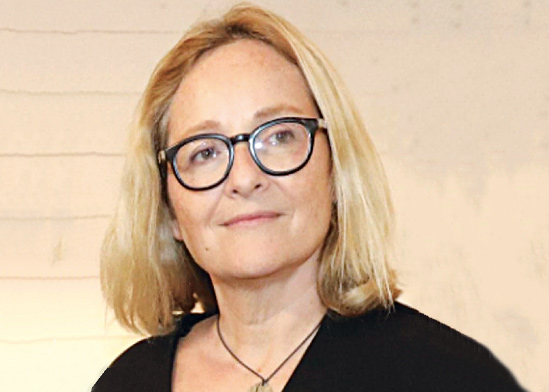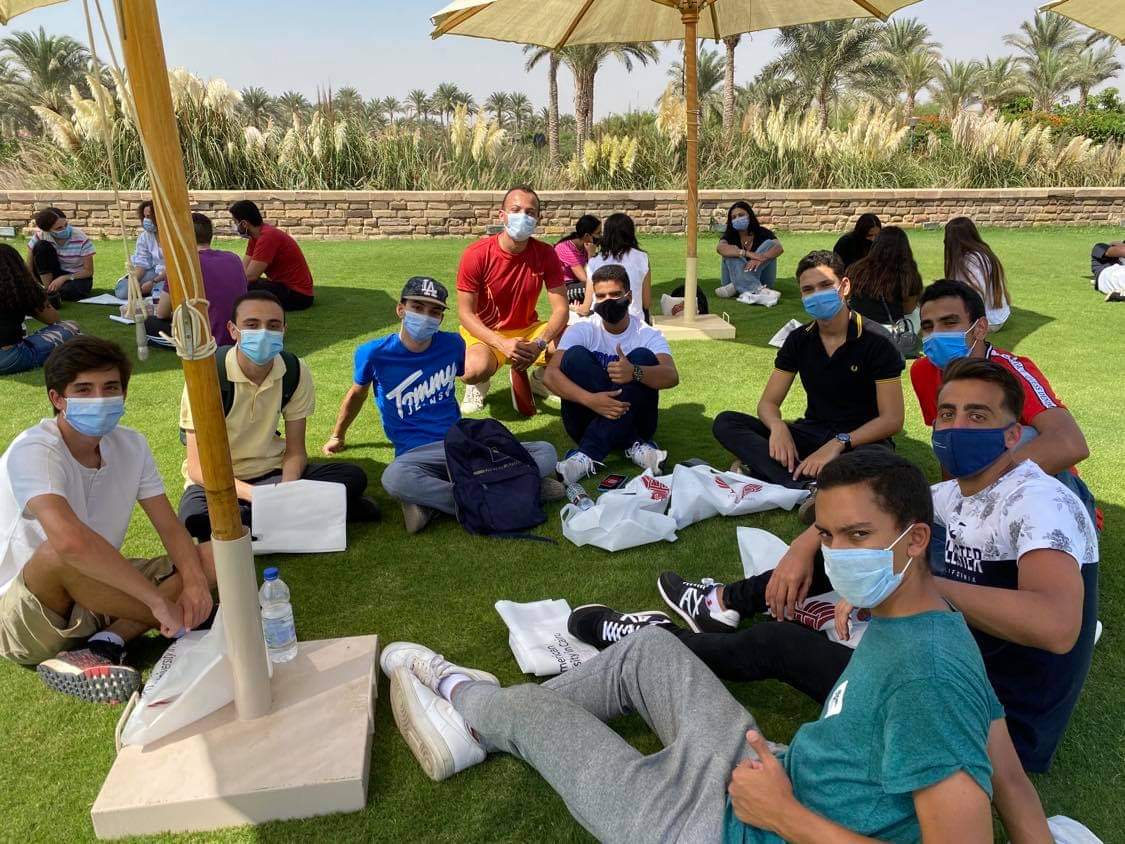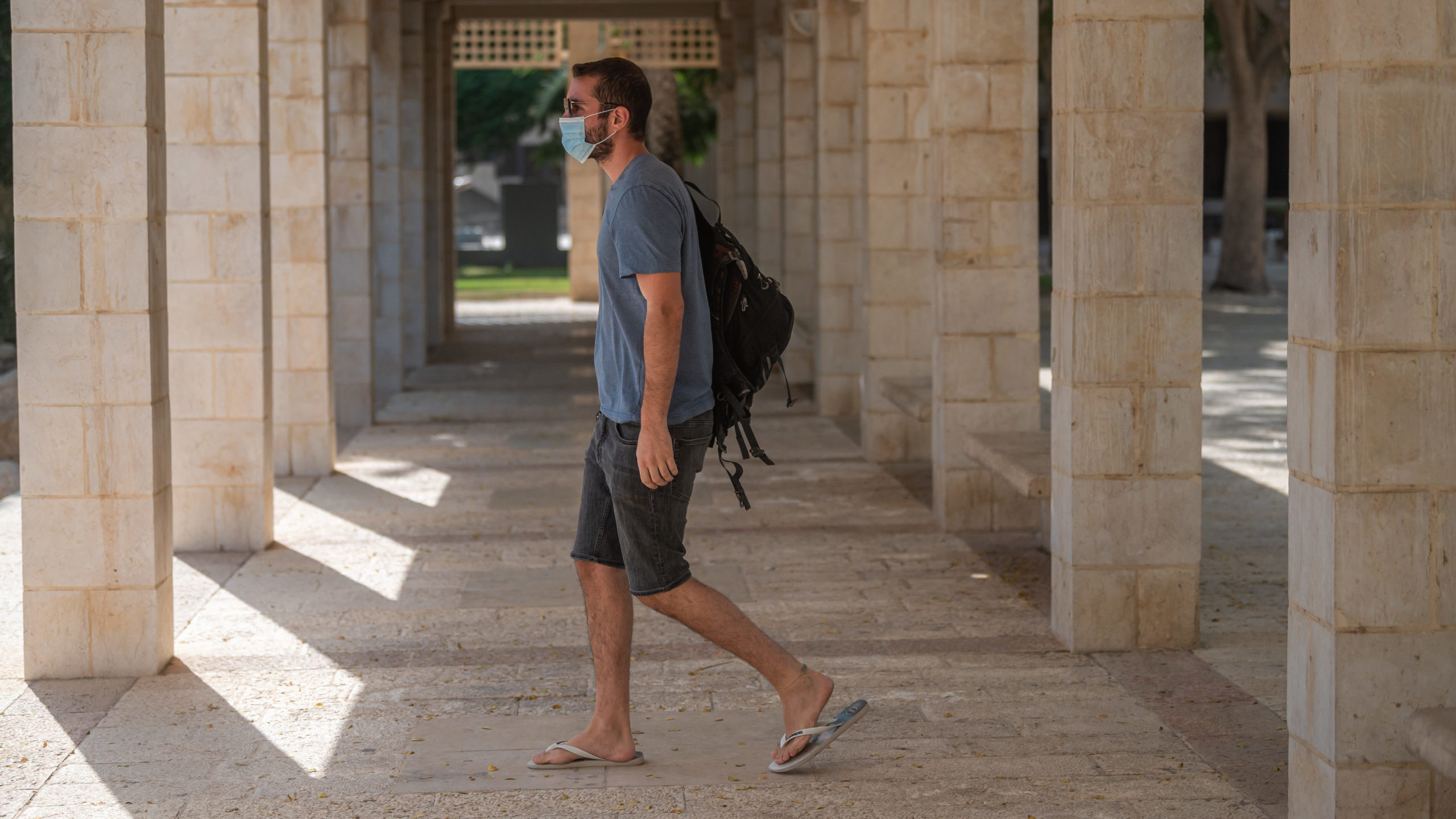Coronavirus pandemic forces schools to decide on physical or remote learning or a hybrid model
The American University of Beirut on Monday held a virtual opening ceremony broadcast live on YouTube.
“People are looking for something. Normality. A bit of hope. We felt that it was very important that AUB was seen to be undaunted by what’s going on. So we thought we’d throw this rousing and optimistic message around opening day,” Martin Asser, assistant vice president for communications at AUB, told The Media Line.
But in Lebanon and across the Middle East, the fall kickoff to the academic year is anything but normal as universities adjust to the coronavirus pandemic.
The start of school at AUB was delayed by a week because of the August 4 explosion that devasted Lebanon’s capital city, a decision made in coordination with the other 10 nonprofit private educational institutions in the country.
The virtual opening ceremony was a preview of the first month of school for AUB students with all classes taught online. The situation will be reviewed in October, according to Asser, when some classes that cannot be taught online may be scheduled as on-campus activities.
While AUB is going all-in with remote learning, at least to start the academic year, other universities are taking a hybrid approach to the academic calendar.
When the fall semester starts on October 18 at Tel Aviv University, international students will be given the option to physically be in the classroom or to participate remotely via Zoom or other modes of technology, according to Prof. Milette Shamir, vice president for international affairs at TAU.

Tel Aviv University Vice President for International Affairs Prof. Milette Shamir. (Courtesy Tel Aviv University)
“Because most of the international students are coming from far away, it really makes little sense to bring them here and teach them through Zoom,” Shamir told The Media Line.
Shamir said that the approach will be different for Israeli students, with a large percentage of courses taught online.
However, some Israeli students will be physically present for classes, Shamir continued, including most freshmen who will be on campus for a third of their classes and advanced graduate students who usually sit in smaller class sizes and will be given the option for physical learning.
Whether physical or virtual, the classes could be full at TAU.
Shamir said that, while many other universities around the world are seeing a decline in enrollment, the number of students enrolled at TAU is up by about 30% and the number of students admitted is also up by a significant percentage. The exception this academic year will be fewer international students, according to Shamir, because for many of them, their home universities are not greenlighting study abroad programs because of coronavirus concerns.
“Otherwise we are actually witnessing a growth in the number of students here in Tel Aviv,” said Shamir.
In terms of delivering education, I think the main challenge is on the student side. [Lebanon] is not a country with a good internet connection. With good internet services. And so it is quite difficult for some students to follow the online lectures because of that
The American University in Cairo, which started classes last Thursday, is also implementing a hybrid model, Dena Rashed, associate director of media relations in the Office of Marketing Communication and Public Affairs at AUC, told The Media Line.

Masked students gather during Orientation Week for the 2020/2021 academic year at the American University in Cairo. (Courtesy AUC)
Rashed said that the hybrid model emphasizes “maintaining a low-density campus” with 93% of classes held online while only 7% are physically on campus for the 1,200 undergraduates and more than 340 admitted graduate students hailing from 26 countries.
Ben-Gurion University of the Negev is taking an innovative approach to its own hybrid model for the academic year, according to Ehud Zion Waldoks, deputy spokesperson for international media in the Department of Publications and Media Relations.

A student wears a mask to prevent spread of the coronavirus on the campus of Ben-Gurion University of the Negev in Beersheba, Israel. (Dani Machlis/Ben-Gurion University)
For classes with up to 20 students enrolled, the lessons will take place on campus with physical distancing measures, Zion Waldoks told The Media Line. For classes with more than 20 students enrolled, an app will be developed so the rest of the class can learn online simultaneously.
“We are installing web cameras in many of the classrooms to facilitate the hybrid teaching model,” Zion Waldoks added.
Israel ranks 17th in the world for overall internet quality, according to the Economist Intelligence Unit’s Inclusive Internet Index 2020. Lebanon ranks 60th out of the 100 countries listed.
“In terms of delivering education, I think the main challenge is on the student side. [Lebanon] is not a country with a good internet connection. With good internet services. And so it is quite difficult for some students to follow the online lectures because of that,” Asser said, adding that frequent power outages were also a challenge for remote learning.
The economic fallout from the coronavirus pandemic has forced universities to make tough fiscal decisions. Lebanon was already going through an economic crisis and the pandemic compounded the problem.
In July, AUB announced that 650 staff members were being laid off and another 200 were either not having their contracts renewed or were not being replaced upon retirement.
Zion Waldoks said that universities in Israel are bracing for an approximately 3% cut in the higher education budget, with the BGU administration putting together a budget that takes this into account.
A BGU fundraising campaign to alleviate the financial difficulties facing students was launched with a goal of raising $6 million to distribute to students and Zion Waldoks said that about two-thirds of the goal had already been reached and the money had already begun to be distributed.
Related stories: